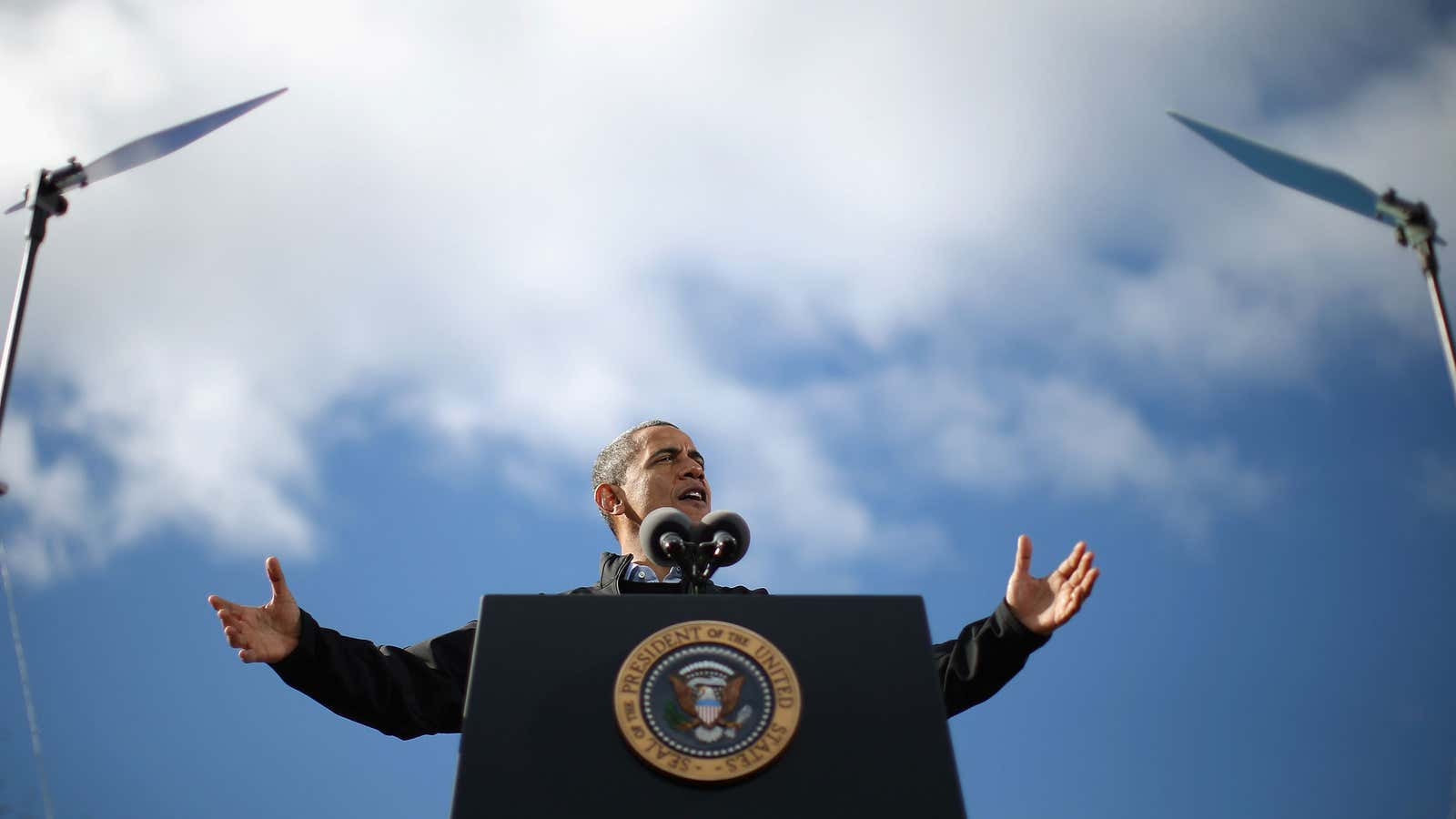If you thought the uncertainty of gridlock was a bummer, wait until the uncertainty of legislative season begins. You may think that the election brought answers, but it only brings more questions. With the election of Barack Obama, there’s more clarity about the direction of the American economic ship—and the kinds of waves it makes for the rest of the world—but there are still too many clouds on the horizon to predict a true course.
The election will likely cement Obama’s economic legacy: He’ll reap the political rewards of presiding over continued growth. Equally important, he’ll have the opportunity to spend the next four years implementing his regulatory overhauls of health care and financial markets (that screaming you hear is coming from Wall Street), a complex task that would have been abandoned had Obama not prevailed in the vote. The possibilities of new policy making around housing, education and immigration reform aren’t out of reach. But first things first.
Here comes the cliff
The US economy has been growing steadily if not quickly for the last year, churning out a steady growth of new jobs. With housing finally leaning toward a rebound and the Federal Reserve committed to stimulus, the economic fundamentals in the US are looking brighter than they have in years.
It shouldn’t be that easy, so perhaps spurred by fond memories of 2008, Obama looks forward to the so-called “fiscal cliff,” which promises dizzying austerity and a recession for 2013 if a deal cannot be reached. The challenge for the re-elected president is to figure out a deal that avoids austerity while still garnering the votes of House Republicans who want massive spending cuts, ideally working with the lame-duck Congress to lay some kind of transition path.
Depending on the perception of the president’s mandate, this could be easy or hard, but Obama has a trick up his sleeve: He can go over the fiscal cliff, resetting the budget base-line and giving him leverage to bargain with the new Congress to avoid a recession. That will mean tackling tax reform negotiations with an intent to close loopholes, lower rates and leave the wealthy paying a higher share, all while agreeing to budget cuts and potential social insurance reforms to convince the House to make a deal.
But there’s one conclusion you can draw: it’s not clear when or how America’s fiscal situation will be resolved.
Crises and transition abroad
After the fiscal cliff, the biggest economic problems for the US are abroad: The simmering European financial crisis and the challenge of accounting for the rise of China. On Europe, there is little the president can do at the moment but provide negotiating support and advice. (Of it comes down to providing more money for bailouts, that’s when things get interesting.)
In China, the 18th Communist party congress begins two days after the US election, with a new leadership expected to be announced around Nov. 15. Recent reports suggest it may contain a preponderance of hardliners, and Xi Jinping, the man expected to become China’s leader, has strong army ties, creating expectations (paywall) that China’s recent geopolitical muscle-flexing will intensify.
The Obama team will be carefully watching the transition—and will be hoping to continue gently urging China to develop domestic markets, while reprimanding it for trade abuses and for pushing around neighboring countries that are also US allies.
Working on day one
Obama’s broad economic challenge remains the same: To simultaneously maintain investments in public goods like infrastructure, education and research; protect social insurance institutions; and still reduce public debt without killing growth. He’ll have a limited palette to work with as Republicans control the House, but perhaps his repeated pitch of balanced fiscal reduction will be more attractive after a victory. His initial challenge will be picking the personnel to deliver this message, including a new Treasury Secretary who can negotiate a base-broadening, rate-lowering tax reform deal that seems critical to the entire operation. With re-election out of the way, he’ll have a chance to focus on policy and to engage with a new Congress that could be a more willing to find a middle ground.
